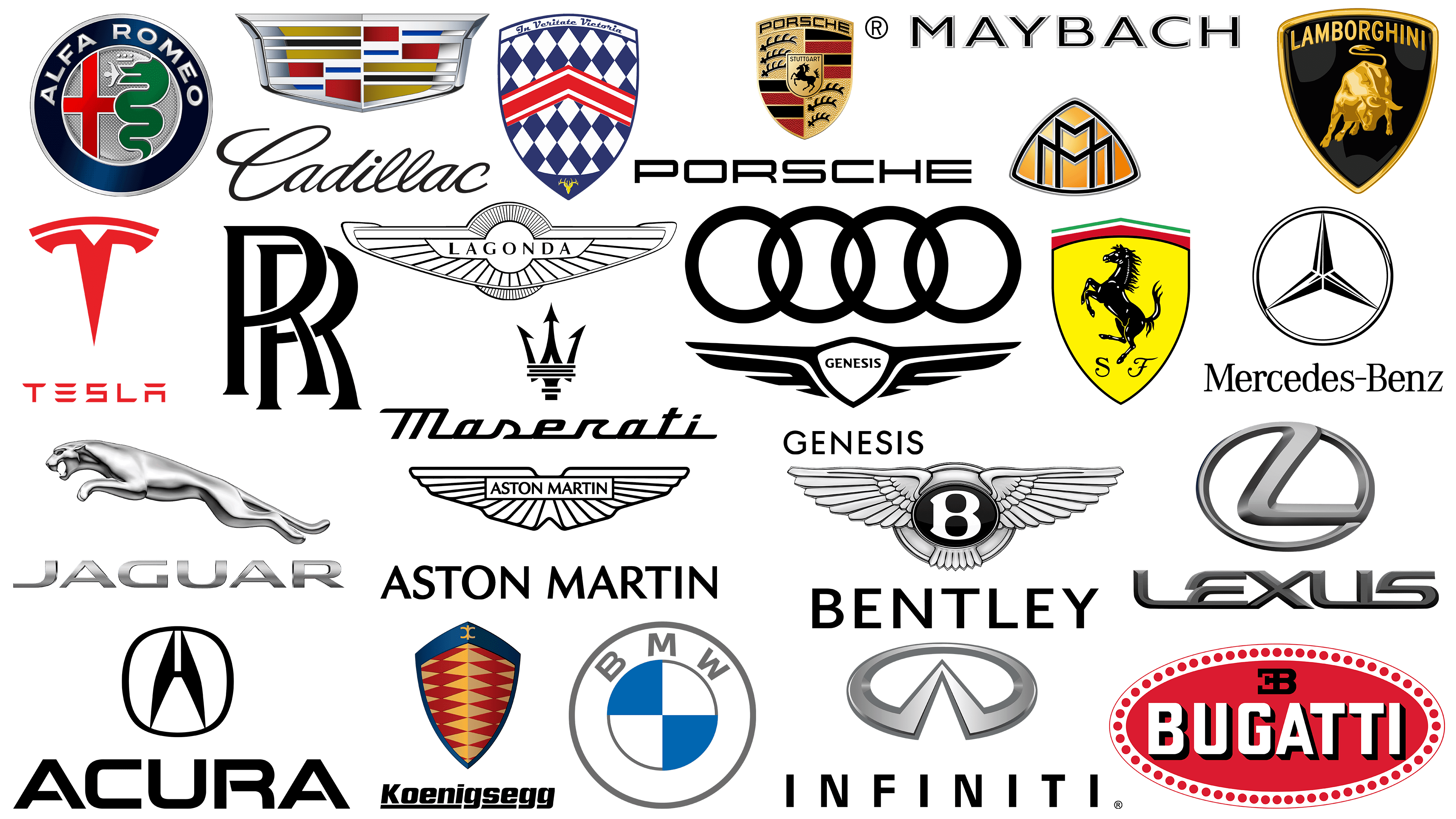The China Factor: How Market Shifts Affect Luxury Car Brands Like BMW And Porsche

Table of Contents
Rising Chinese Consumer Preferences and Their Impact
The Chinese luxury car market is no longer solely dominated by established European brands. While German brands like BMW and Porsche still hold significant market share, a fascinating shift in Chinese consumer preferences is reshaping the landscape. This evolution demands a nuanced understanding from luxury car manufacturers to remain competitive.
- Growing demand for electric and hybrid vehicles: The Chinese government's push for electric vehicle (EV) adoption, coupled with increasing environmental awareness among consumers, is driving a surge in demand for EVs and hybrids. Luxury brands must invest heavily in this sector to remain relevant.
- Increasing preference for SUVs and larger vehicles: SUVs and larger vehicles are increasingly popular among Chinese consumers, reflecting a shift towards family-oriented lifestyles and a desire for greater space and comfort. This trend necessitates a robust SUV portfolio for luxury car brands.
- The rise of personalized luxury experiences and customization: Chinese consumers are demanding more personalized luxury experiences, valuing bespoke options and customization to reflect their individual tastes and status. Tailoring offerings to meet this need is vital for success.
- Focus on technology and smart features: Chinese consumers are highly tech-savvy and expect advanced technology and smart features in their vehicles. Integration of cutting-edge technology is no longer a luxury, but a necessity.
These shifts necessitate a dynamic approach from BMW and Porsche. Their marketing and product development strategies must adapt to meet the evolving demands of Chinese consumers, focusing on EVs, SUVs, personalization, and advanced technology. Failure to do so risks losing market share to more agile competitors.
Economic Fluctuations and Their Ripple Effects on Luxury Car Sales
The Chinese economy's performance directly impacts the luxury car market. Economic slowdowns can lead to decreased consumer spending and reduced luxury car sales, while periods of growth spur positive effects. Understanding these economic cycles is crucial for effective strategic planning.
- Impact of trade wars and global economic uncertainty: Global economic uncertainty and trade wars can significantly influence consumer confidence and purchasing power, directly impacting luxury car sales in China. Brands need contingency plans to manage these unpredictable events.
- Changes in disposable income and consumer spending habits: Fluctuations in disposable income directly influence luxury purchases. Economic downturns often lead to reduced spending on discretionary items like luxury cars, necessitating adjustments in pricing and promotional strategies.
- The role of government policies and regulations: Government policies and regulations, including emission standards and tax policies, significantly impact the luxury car market. Brands need to be aware of and adapt to these changes to maintain compliance.
BMW and Porsche respond to these economic factors by adjusting their pricing strategies, offering attractive financing options, and implementing targeted sales promotions during periods of economic slowdown. Careful monitoring of economic indicators and government policies is critical for successful navigation of these fluctuations.
The Competitive Landscape: Domestic Chinese Brands Gaining Ground
The rise of domestic Chinese luxury car brands is presenting a significant challenge to established players like BMW and Porsche. These new brands are leveraging their understanding of the local market and advanced technology to gain traction.
- The rise of brands like Nio, Xpeng, and Li Auto: These innovative brands are rapidly gaining market share by offering competitive pricing, advanced technology, and localized features that resonate with Chinese consumers.
- Their competitive advantages in terms of technology, price, and understanding the local market: Domestic brands often have a better grasp of local preferences and can offer competitive pricing, leveraging technological advancements and localized services.
- The challenge for established brands to maintain their competitive edge: Established brands must innovate and adapt rapidly to compete with the aggressive strategies of domestic rivals.
BMW and Porsche are responding by investing in local production, developing vehicles tailored to Chinese consumer preferences, and leveraging their established brand recognition and global expertise. The competition is fierce, demanding continuous innovation and adaptation.
Adapting to the Digital Landscape in China
China's digital landscape is highly developed and presents unique opportunities for luxury car brands to connect with consumers. Effective digital marketing is no longer optional; it's essential for success.
- The use of social media platforms like WeChat and Weibo: WeChat and Weibo are crucial platforms for reaching Chinese consumers, requiring tailored content strategies and active community engagement.
- Online sales channels and digital showrooms: Online sales channels and immersive digital showrooms are gaining popularity, offering convenient and engaging ways for consumers to explore and purchase luxury vehicles.
- The importance of building a strong online brand presence: A robust online presence is vital for building brand awareness, engagement, and trust with Chinese consumers.
BMW and Porsche are adapting by investing heavily in digital marketing strategies, leveraging social media, building robust online platforms, and creating engaging digital experiences to connect with and cultivate relationships with their target audiences.
Conclusion
The "China factor" is undeniably a powerful force shaping the luxury car market. BMW and Porsche, along with other global players, must navigate the evolving preferences of Chinese consumers, economic fluctuations, and increasing competition from domestic brands. By understanding and adapting to these market shifts, luxury car brands can strengthen their position and capitalize on the immense potential of this significant market. To stay ahead in the game, continuous monitoring and strategic adjustments to adapt to the ever-changing "China factor" are crucial. Understanding the China factor is paramount for sustained success in the luxury car segment.

Featured Posts
-
 The Conclave A Step By Step Guide To Choosing The Next Pope
May 07, 2025
The Conclave A Step By Step Guide To Choosing The Next Pope
May 07, 2025 -
 The White Lotus Season 3 Identifying The Voice Actor For Kenny Tims Colleague
May 07, 2025
The White Lotus Season 3 Identifying The Voice Actor For Kenny Tims Colleague
May 07, 2025 -
 Lewis Capaldi Su Reaparicion En Wwe Smack Down Despues De Su Pausa
May 07, 2025
Lewis Capaldi Su Reaparicion En Wwe Smack Down Despues De Su Pausa
May 07, 2025 -
 Is John Wick 5 Really Over A Look At The Latest News
May 07, 2025
Is John Wick 5 Really Over A Look At The Latest News
May 07, 2025 -
 Simone Biles Reflexiones Sobre Su Presencia En Los Angeles 2028
May 07, 2025
Simone Biles Reflexiones Sobre Su Presencia En Los Angeles 2028
May 07, 2025
Latest Posts
-
 The White Lotus Season 3 Did Ke Huy Quan Make A Cameo Appearance
May 07, 2025
The White Lotus Season 3 Did Ke Huy Quan Make A Cameo Appearance
May 07, 2025 -
 Cleveland Cavaliers Win Over Bulls Propels Them To First Place In The East
May 07, 2025
Cleveland Cavaliers Win Over Bulls Propels Them To First Place In The East
May 07, 2025 -
 Ke Huy Quans The White Lotus Season 3 Cameo Explained
May 07, 2025
Ke Huy Quans The White Lotus Season 3 Cameo Explained
May 07, 2025 -
 Analyzing The Eastern Conference Clevelands Biggest Playoff Rivals Excluding Boston
May 07, 2025
Analyzing The Eastern Conference Clevelands Biggest Playoff Rivals Excluding Boston
May 07, 2025 -
 Press Release Ldcs Future Forum 2025 In Zambia Building Resilient And Sustainable Futures
May 07, 2025
Press Release Ldcs Future Forum 2025 In Zambia Building Resilient And Sustainable Futures
May 07, 2025
